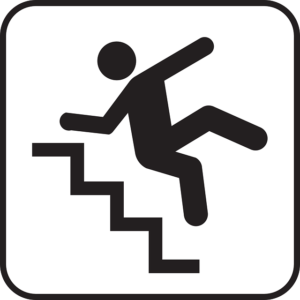Are you tired of feeling powerless and afraid due to the fear of crime? Take control of your safety and empower yourself with practical strategies.
In this article, we will explore evidence-based techniques to overcome your fear. By understanding the psychology behind fear, assessing personal risks, building a support network, and developing situational awareness skills, you can regain confidence and security.
It’s time to break free from the shackles of fear and embrace a life of empowerment.
Key Takeaways
 Trauma and fear are intertwined, and fear responses are natural and serve as a protective mechanism.
Trauma and fear are intertwined, and fear responses are natural and serve as a protective mechanism.- Coping mechanisms, such as seeking social support and engaging in relaxation techniques, play a crucial role in managing fear.
- Assessing personal safety risks is important, including evaluating routines, surroundings, and current security measures.
- Building a support network through friends, family, local organizations, and self-defense or safety workshops is essential for overcoming fear.
Understanding the Psychology of Fear
You need to understand the psychology of fear in order to overcome it. Trauma and fear are intertwined in a complex relationship. When an individual experiences a traumatic event, such as being a victim of a crime, it can elicit intense fear responses. These fear responses are natural and serve as a protective mechanism to ensure our survival.
Understanding the psychology of fear involves recognizing the impact that trauma can have on our thoughts, emotions, and behaviors. Coping mechanisms play a crucial role in managing fear. These mechanisms can include seeking social support, engaging in relaxation techniques, and reframing negative thoughts.
Assessing Your Personal Safety Risks
Assessing your personal safety risks involves identifying potential vulnerabilities and taking proactive measures to minimize them. It’s important to conduct a thorough personal safety assessment to evaluate the risks you may face in your daily life. Here are four key steps to consider when conducting a risk evaluation:
-
Identify your surroundings: Take note of the areas you frequent regularly, such as your home, workplace, or neighborhood. Assess the safety features and potential risks associated with each location.
-
Evaluate your routines: Analyze your daily routines and habits. Identify any patterns or behaviors that may make you more vulnerable to crime, such as walking alone at night or leaving valuables visible in your car.
-
Assess your personal security measures: Evaluate the effectiveness of your current security measures, such as locks, alarm systems, or self-defense training. Determine if any improvements or enhancements are needed.
-
Seek professional advice: Consider consulting with security professionals or local law enforcement for expert guidance on personal safety measures and risk management strategies.
Building a Strong Support Network
To build a strong support network, consider reaching out to friends and family who can provide assistance and guidance. Having a support system is crucial for your emotional well-being and can help you overcome the fear of crime.
Research has shown that individuals with strong social connections are more resilient and better equipped to deal with stressful situations. By engaging with your community, you can also expand your support network and create a sense of belonging.
Joining local organizations or participating in community events can help you meet new people who share similar concerns and interests. Additionally, consider attending self-defense or safety workshops in your area. These workshops not only provide valuable knowledge and skills, but also offer an opportunity to connect with others who are also focused on personal safety.
Building a strong support network is essential in empowering yourself and overcoming the fear of crime.
Developing Situational Awareness Skills
First, take notice of your surroundings and be aware of any potential risks or threats. Developing situational awareness skills is crucial for empowering yourself and overcoming the fear of crime.
Strengthening your intuition and improving your observation skills can significantly enhance your ability to recognize and respond to dangerous situations. Here are four key practices to help you develop situational awareness:
-
Pay attention to your environment: Be mindful of what’s happening around you at all times. Notice people, vehicles, and any unusual activity.
-
Trust your instincts: If something feels off or doesn’t seem right, listen to your gut. Your intuition can often pick up on subtle cues that your conscious mind might miss.
-
Practice active observation: Train yourself to observe details such as facial expressions, body language, and unusual objects or behaviors. This can provide valuable information about potential threats.
-
Stay informed: Stay updated on local crime trends and safety tips. Being knowledgeable about the risks specific to your area can help you make more informed decisions and stay prepared.
Implementing Practical Security Measures
Start by identifying the areas in your home where you can reinforce security and take proactive steps to protect yourself and your belongings.
One practical security measure you can implement is installing security systems. These can include alarm systems, surveillance cameras, and motion sensor lights. Alarm systems provide a deterrent effect by alerting you and others to potential threats. Surveillance cameras can capture footage of suspicious activities, aiding in identification and law enforcement efforts. Motion sensor lights illuminate dark areas, making it harder for intruders to go unnoticed.
Additionally, it’s essential to learn self-defense techniques. Enrolling in self-defense classes can equip you with the necessary skills to protect yourself in dangerous situations. These techniques can empower you to react confidently and effectively if faced with an attacker.
Empowering Yourself Through Self-Defense Training
Take control of your personal safety by enrolling in self-defense training to empower yourself against potential threats. Learning self-defense techniques not only equips you with the physical skills to protect yourself, but it also builds your self-confidence.
Here are four reasons why self-defense training can be beneficial:
-
Improved situational awareness: Self-defense training teaches you to be aware of your surroundings and identify potential threats, allowing you to better assess dangerous situations.
-
Enhanced physical fitness: Self-defense training involves physical exercises and techniques that improve your strength, flexibility, and coordination, helping you become more physically capable of defending yourself.
-
Increased self-confidence: As you learn and practice self-defense techniques, your confidence in your ability to protect yourself grows, giving you a sense of empowerment and reducing the fear of becoming a victim.
-
Stress reduction: Engaging in self-defense training can help reduce stress and anxiety by providing an outlet for physical activity and teaching you how to effectively manage fear and adrenaline in high-pressure situations.
Utilizing Technology for Personal Safety
You can enhance your personal safety by utilizing technology, such as smartphone apps and wearable devices, to stay connected and alert in case of emergencies.
Smartphone apps have become increasingly popular for personal safety. There are various apps available that can send distress signals to emergency contacts or even directly to the authorities. These apps can also track your location in real-time, allowing your loved ones to know where you’re in case of an emergency.
Additionally, wearable devices, such as personal alarms, have proven to be effective in deterring potential attackers. These devices emit a loud sound when activated, drawing attention to your situation and potentially scaring off the perpetrator.
Seeking Professional Help and Support
If you’re struggling with the fear of crime, consider reaching out to a professional counselor or therapist who can provide guidance and support. Seeking professional help can be a valuable step in overcoming your fear and gaining a sense of empowerment.
Here are four reasons why professional counseling can be beneficial:
-
Expertise: Professional counselors have extensive training and knowledge in helping individuals cope with fear and anxiety. They can provide you with effective strategies and techniques to manage your fear of crime.
-
Safe and Confidential Space: Counseling sessions offer a safe and confidential environment where you can openly express your fears and concerns without judgment. This can help you explore the root causes of your fear and work towards finding solutions.
-
Emotional Support: Professional counselors can offer emotional support during your journey towards overcoming the fear of crime. They can provide validation, empathy, and understanding, helping you feel heard and supported.
-
Access to Community Resources: Counselors often have access to a network of community resources that can further support your healing process. They can connect you with support groups, self-defense classes, or other relevant resources in your community.
Frequently Asked Questions
How Do I Handle the Fear of Crime When I Have Experienced a Traumatic Event in the Past?
When you’ve experienced a traumatic event in the past, handling the fear of crime can be challenging. It’s important to acknowledge the impact the trauma has had on you and seek professional help if needed.
Overcoming trauma requires a combination of self-care, support from loved ones, and therapy. By working with a trained professional, you can develop coping mechanisms and strategies to gradually reduce your fear and regain a sense of safety and empowerment.
Are There Specific Self-Defense Techniques That Are More Effective for Women?
Are you wondering about effective self-defense techniques for women? Well, fear not! There are indeed specific techniques that can empower women in self-defense situations.
Studies have shown that techniques like Krav Maga and Brazilian Jiu-Jitsu can be particularly effective in empowering women to protect themselves. These techniques focus on using leverage and technique rather than relying on brute strength, making them accessible and effective for women of all sizes and abilities.
What Are the Legal Implications of Carrying Personal Safety Devices Such as Pepper Spray or Tasers?
Carrying personal safety devices such as pepper spray or tasers can have legal implications. It’s important to understand the self-defense laws in your jurisdiction.
Different places have different regulations regarding the use and possession of these devices. Some areas may require permits or have restrictions on their use.
Familiarize yourself with the specific laws in your area to ensure you’re within the legal boundaries when carrying personal safety devices.
How Can I Involve My Friends and Family in Building a Strong Support Network for Personal Safety?
To involve your friends and family in building a strong support network for personal safety, start by having open and honest conversations about your concerns. Encourage them to share their own experiences and ideas.
Together, create safety plans that include communication strategies, emergency contacts, and designated meeting places.
Engage in community activities and initiatives focused on crime prevention.
Are There Any Online Resources or Apps That Can Help Me Stay Informed About Crime Rates and Safety Tips in My Area?
Online crime trackers and safety apps can be valuable resources for staying informed about crime rates and safety tips in your area. These tools provide real-time updates on reported incidents, allowing you to assess the safety of your surroundings.
They also offer helpful features such as crime maps, safety tips, and community forums where you can connect with other users.
Conclusion
Overcoming the fear of crime requires a proactive approach to personal safety.
By understanding the psychology of fear, assessing your risks, building a support network, and implementing practical security measures, you can empower yourself to feel safer in your daily life.
Just as a ship navigates through stormy seas with a strong compass, you too can navigate through the fear of crime by equipping yourself with the necessary tools and knowledge to stay safe.






